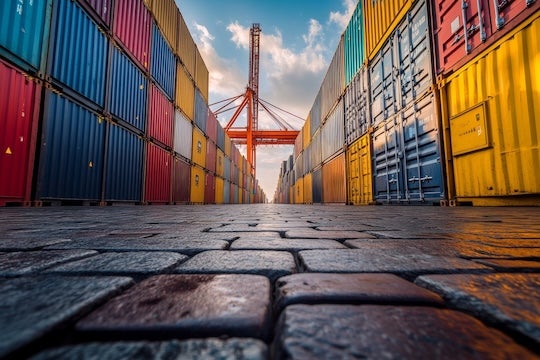As the new administration’s latest round of tariffs take effect, Rice University experts are available to discuss the economic and political implications.

Steven Lewis, the C.V. Starr Transnational China Fellow at Rice’s Baker Institute for Public Policy, professor in the practice in the Department of Transnational Asian Studies and associate director of the Chao Center for Asian Studies, can discuss Chinese domestic politics and public policy decision-making in China.
“The fact that both government spokespeople and even social media pundits in China are referring to the tariff war as an actual war is a sign that the Chinese government considers this a national security issue and not just an economic issue, which means that Xi Jinping is directly calculating China’s responses to the Trump administration’s tariffs,” Lewis said.
Mark Jones is a professor of political science at Rice and a fellow at the Baker Institute. His expertise and scholarly work has been widely cited by local, state and national media as well as numerous political campaigns. He said Trump is “engaged in a risky gambit in implementing tariffs.”
“The president’s hardball tactics may very well pay off in the end, but in the short term they are likely to cause heartburn for U.S. businesses,” Jones said. “In the medium term, depending on how long they remain in force and the reaction by foreign leaders, they could result in negative economic consequences for many Americans, including higher prices and potential job losses.”
John Diamond is the Edward A. and Hermena Hancock Kelly Senior Fellow in Public Finance and the director of the Center for Tax and Budget Policy at the Baker Institute, an adjunct professor of economics at Rice and CEO of Tax Policy Advisers, LLC. His research interests include federal tax and expenditure policy, state and local public finance and the construction and simulation of computable general equilibrium models.
“While short-term and targeted tariffs may be politically necessary at times, tariffs cause real damage to the economy and reduce growth and the standard of living, especially when other countries retaliate,” Diamond said.
Ken Medlock is the James A. Baker III and Susan G. Baker Fellow in Energy and Resource Economics at the Baker Institute and the senior director of the Center for Energy Studies. He is also the director of the Master of Energy Economics program at Rice.
“Tariffs are generally not good for economic growth, but the impacts of tariffs are not uniform,” Medlock said. “They depend on the commodity affected, the depth of the market impacted, retaliatory measures taken and how investor expectations are influenced. Each of these factors can manifest differently over time and at different scales, thus driving volatility. In short, the impact of tariffs is complicated, and oversimplification can feed the volatility beast.”
Tony Payan is the Françoise and Edward Djerejian Fellow for Mexico Studies and the director of the Center for the U.S. and Mexico at the Baker Institute. Payan’s research focuses on border studies, particularly the U.S.-Mexico border. He examines daily life in liminal spaces, cross-border flows — both legal and illegal — and border governance issues. He also explores various topics affecting the U.S.-Mexico relationship.
David Gantz is the Will Clayton Fellow in Trade and International Economics at the Baker Institute and the Samuel M. Fegtly Professor Emeritus at the University of Arizona’s James E. Rogers College of Law.
"As of April 9, the U.S. tariff picture remains confused. The erroneously labeled 'reciprocal' tariffs that briefly went into force at midnight have been partially postponed for 90 days except for China, but the baseline 10% tariff remains effective for all other countries, now apparently including Mexico and Canada. Moreover, 25% tariffs remain in effect for all steel, aluminum and automobile imports, with some exceptions for the latter. The Chinese tariffs unless soon lowered will have a significant adverse effect on many U.S. companies' supply chains, and retaliation by China will devastate some U.S. export sectors, particularly U.S. agriculture. Uncertainties for most businesses will preclude new investment and new hiring both in the U.S. and worldwide. Consumers in the United States who are considering a new car, iPhone or laptop would be wise to purchase it from inventory before prices in those sectors particularly skyrocket. The Trump administration has created a historic mess for itself. Unless this huge tax increase for all consumers is substantially modified, it will likely result in lost jobs, lost investment and an economic downturn with particular pain for the least affluent sectors of the population."
To schedule an interview, contact Amy McCaig, senior national media relations specialist at Rice, at 713-348-6777 or amym@rice.edu.

